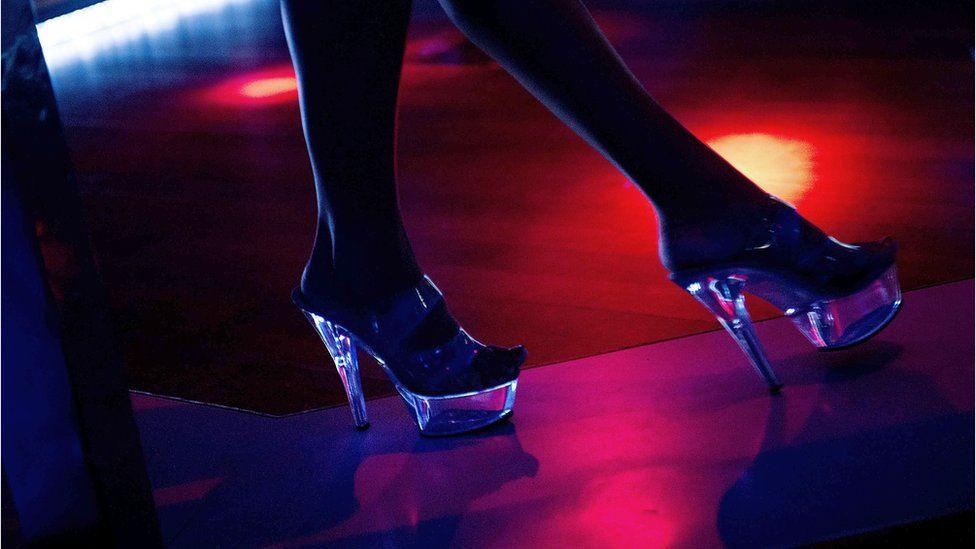Bristol strip club ban 'will put dancers in danger'
- Published
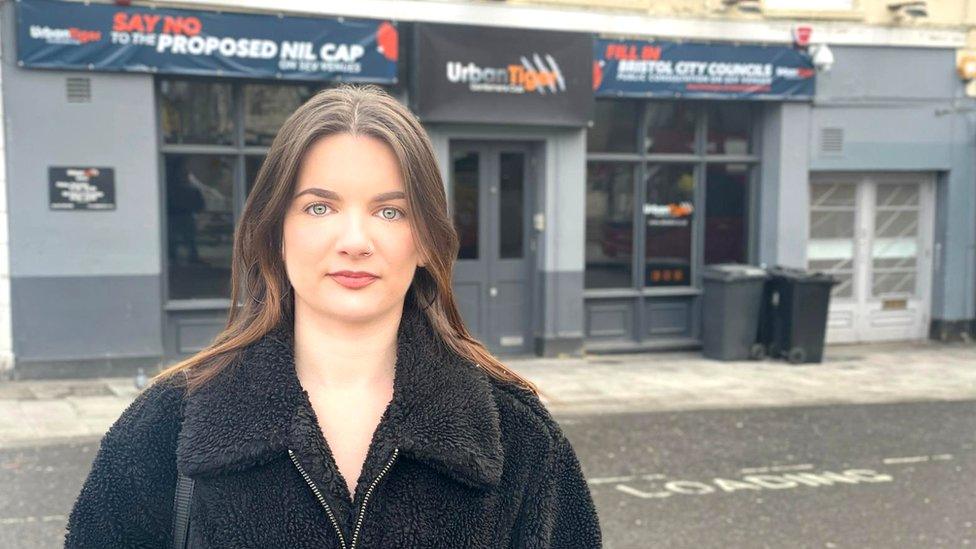
Dancer Amelie says performers deserve access to safe workspaces
Closing strip clubs in Bristol will push the sex industry underground and put dancers "into more danger", a woman who works one of the venues says.
A 12-week consultation on imposing a 'nil cap' on Sexual Entertainment Venues (SEV) has now ended and councillors are considering the ban.
If approved, it would leave no clubs with a license to operate.
A campaign for the ban has been backed by Avon and Somerset's Police and Crime Commissioner, Mark Shelford.
Dancer Amelie says it is a "worker's rights issue" and they should be able to perform somewhere safe.
The dancer has worked at one of Bristol's two strip clubs for the last two years.
She said: "We are not asking anyone to approve of the work we do or support the sex industry, or anything like that.
"What we are asking people to understand is that stripping is a job and just like any other worker we need to benefit from the same rights, which is to be safe at work."
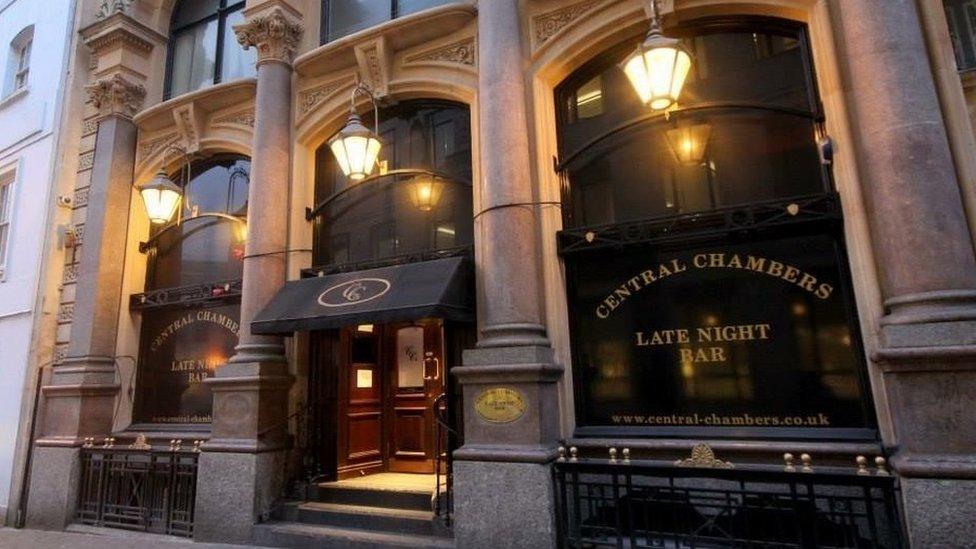
There are two Sexual Entertainment Venues in the city centre - Central Chambers and Urban Tiger
Amelie added: "If the clubs were to close down there is a very strong possibility that the industry would go underground, it would go in hotels or Airbnbs, where there are basically no workers rights.
"There would be no way to report of we were attacked or exploited. It would push the workers into more danger."
A petition set up to stop Bristol City Council from closing the city's strip clubs has gained almost 7,000 signatures.
Strip and pole-dancing clubs are legal in the UK and it is up to individual councils whether to grant licences.
There are two SEVs in the city centre, Urban Tiger and Central Chambers, which are compliant with the current council licencing regime.
Imposing a nil cap on strip clubs would mean that all SEVs currently operating in the city would be required to close and no further premises would be allowed to open.
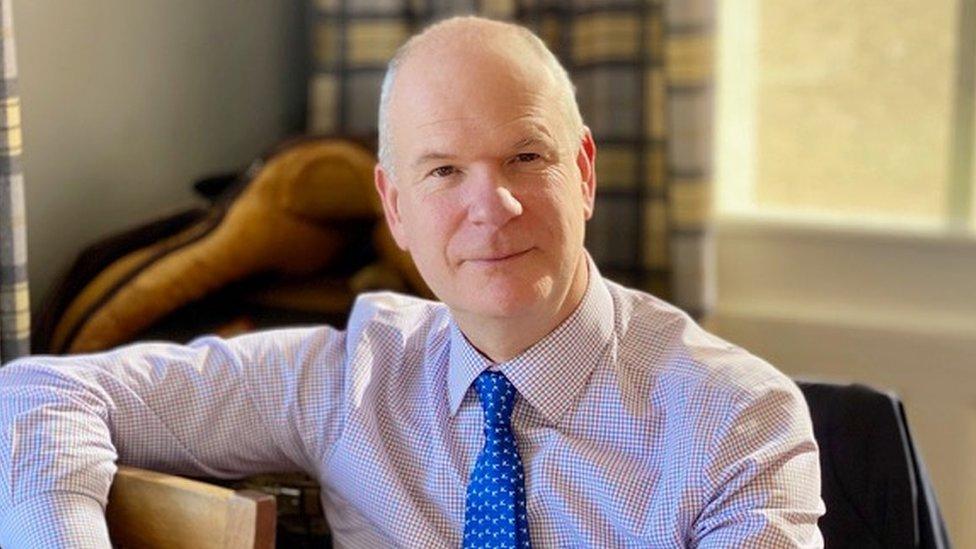
Mark Shelford is in favour of a nationwide ban on strip clubs
As well as supporting the ban, Avon and Somerset's Police and Crime Commissioner, Mark Shelford is urging the government to take decisions on strip clubs away from local authorities by bringing in a full nationwide ban.
He said he had recently met with the managers and some performers at Urban Tiger to hear the views of those working in the industry.
"Violence against women and girls is a significant issue," he said.
"Specifically objectifying women, misogyny, is of great concern and sexual entertainment places are very much a part of that and we have to start somewhere."
He added: "I do recognise that this may directly affect a number of women, like the ones I met and spoke with, who are working in these venues.
"We need to make sure that if this ban comes into effect, all the partners help with an exit strategy for those people involved in this industry to make sure that they are safe for the future."
Bristol City Council said a decision will be made later this year.

Follow BBC West on Facebook, external, Twitter, external and Instagram, external. Send your story ideas to: bristol@bbc.co.uk , external
Related topics
- Published18 September 2021
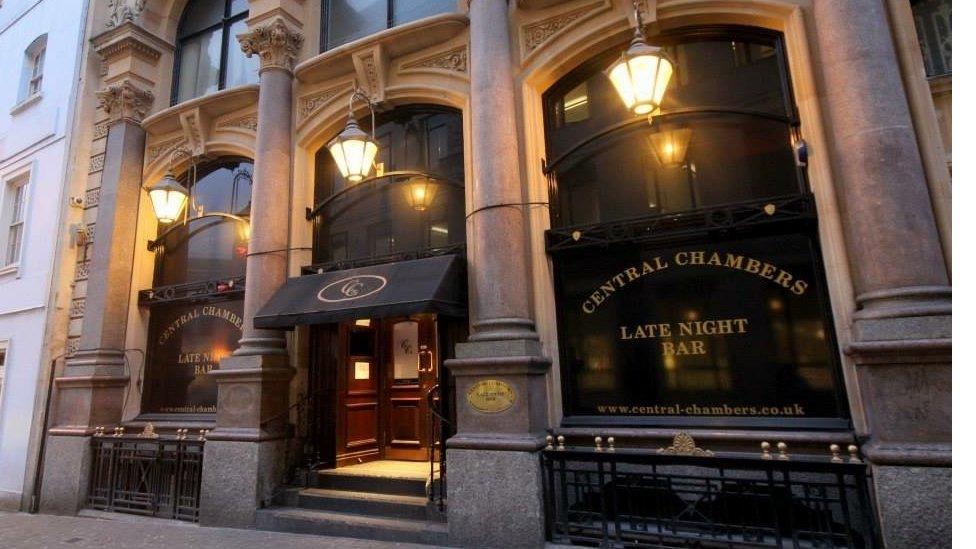
- Published10 June 2021
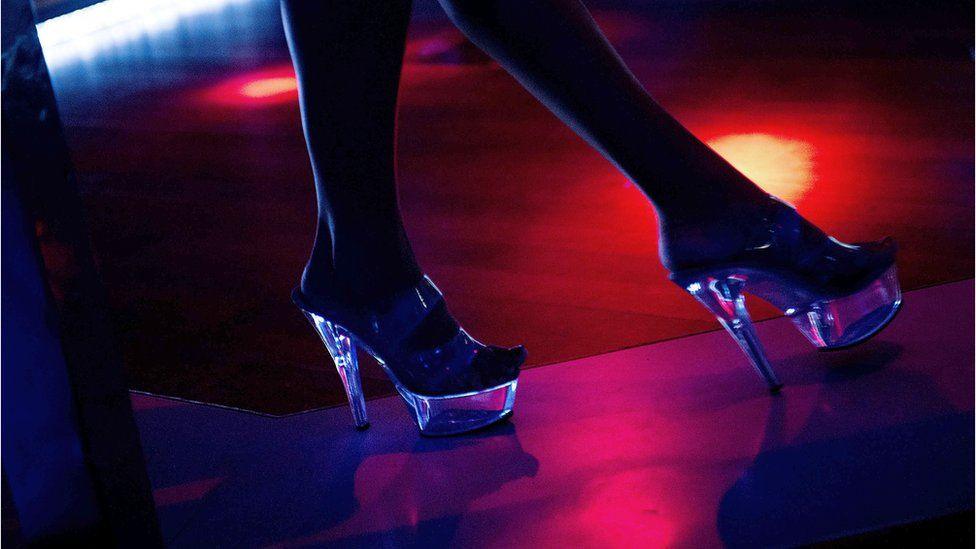
- Published8 March 2021

- Published6 March 2021

- Published1 March 2021
